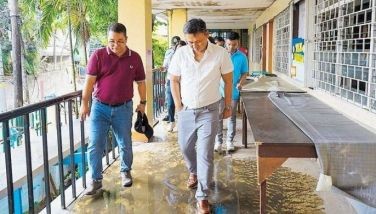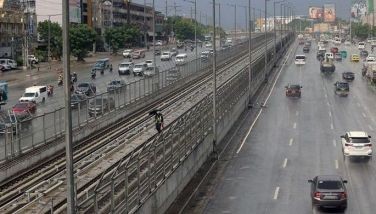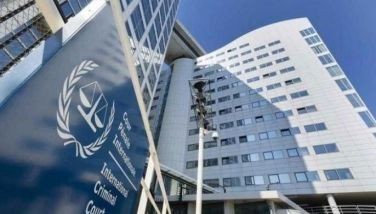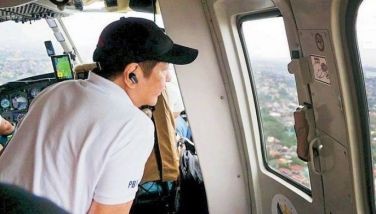UP Law faculty proposes use of new tech for 'smart courts' during pandemic
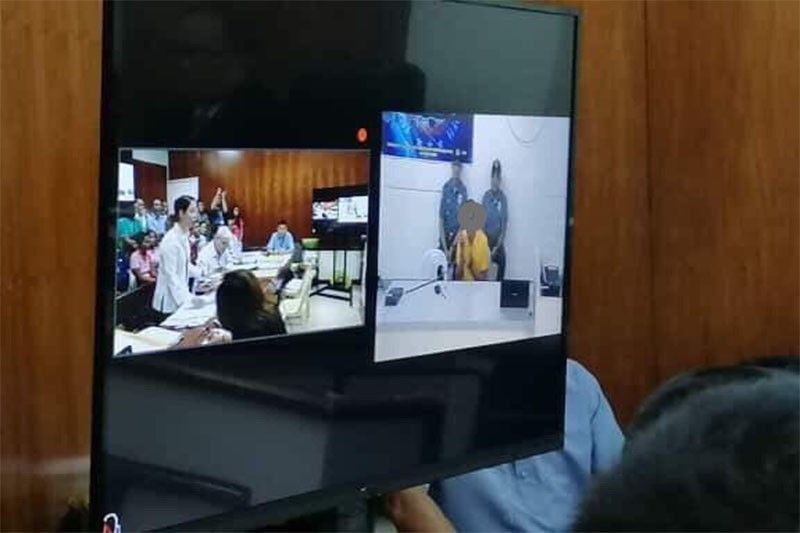
MANILA, Philippines (Updated 8:51 p.m.) — Incorporation of new technologies into the Philippine court system will help dispensation of justice during the COVID-19 pandemic and even after, a study from the University of the Philippines College of Law said.
Six lawyers with the UP College of Law looked into short-, medium- and long-term proposals to help our justice system may adapt in this time when minimal physical interaction is needed.
“Building a Resilient Judicial System,” released Thursday morning, aims to “recommend an implementation framework for temporary alternative court procedures to facilitate the prompt resumption of court proceedings despite the health risks posed by the COVID-19 emergency,” its authors said.
The paper was written by Jay L. Batongbacal, JJ Disini, Michelle Esquivias, Dante Gatmaytan, Oliver Xavier A. Reyes, and Theodore Te.
The Supreme Court Public Information Office said Chief Justice Diosdado Peralta met with other senior justices of the tribunal and court officials on Wednesday to discuss measures for after the community quarantine.
New technologies
Among the short-term solutions—those that may be implemented a month after the current enhanced community quarantine is lifted—listed by the lawyers is the online submission of pleadings, motions, submissions and original evidence.
Chapters of the Integrated Bar of the Philippines may train and provide technical support to older practitioners who may find adapting to new technology a challenge. The Philippine Judicial Academy and the Mandatory Continuing Legal Education office can also help training lawyers on this.
Videoconferencing equipment and services for the conduct of remote hearings may also be considered.
The authors acknowledged that fully automated courts are the ideal, but that that would take years to design.
They suggested instead the development of a “smart court approach” where the court may procure some systems, but tapping a third party—the IBP—is also an option.
For remote hearings: Tapping the IBP
Local IBP chapters may be tapped for help with IT infrastructure for the proposed smart courts—laptops or desktop computer swith webcam, microphone and speakers; internet connectivity and video conferencing services.
These maybe provided to courts, for judges and other court personnel; by jails for detainees, and by the IBP office for private litigants.
The authors said tapping the IBP could help avoid procurement issues.
Store-and-forward procedure for documents
Physical copies may be submitted to a central point, “designated by the court where it will be received, stored for a number of days and then transmitted to the relevant branch for entry into the record.”
The storage of documents for a few days follows information that the virus can survive on surfaces for a period.
Easing notarization
Notaries public can also use teleconferencing—watching while the a document for notarization is signed—in light of restrictions on movement that are not seen to ease anytime soon.
The signed document may also be delivered to the notary public along with a photocopy of the identification.
“The notary then initiates a teleconference with the signer, and possible counsel, during which the notary confirms the authenticity of the signature by requiring the signer to sign on a blank sheet of paper and show it to the notary,” they added.
“For simple oaths, a rule may be enacted to allow a judge to administer an oath via teleconferencing platform,” they also said.
Coordination with legislative and executive branch
The law professors however stressed that the justice system also includes the Departments of Justice and the Interior and Local Government. Preliminary investigation and inquest are under DOJ and these need to streamlined.
Congress may also be asked to review penal provisions for minor infractions.
- Latest
- Trending


















